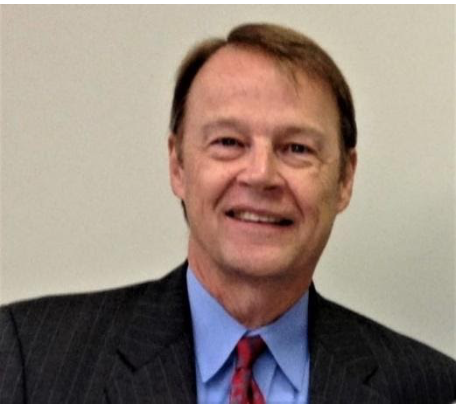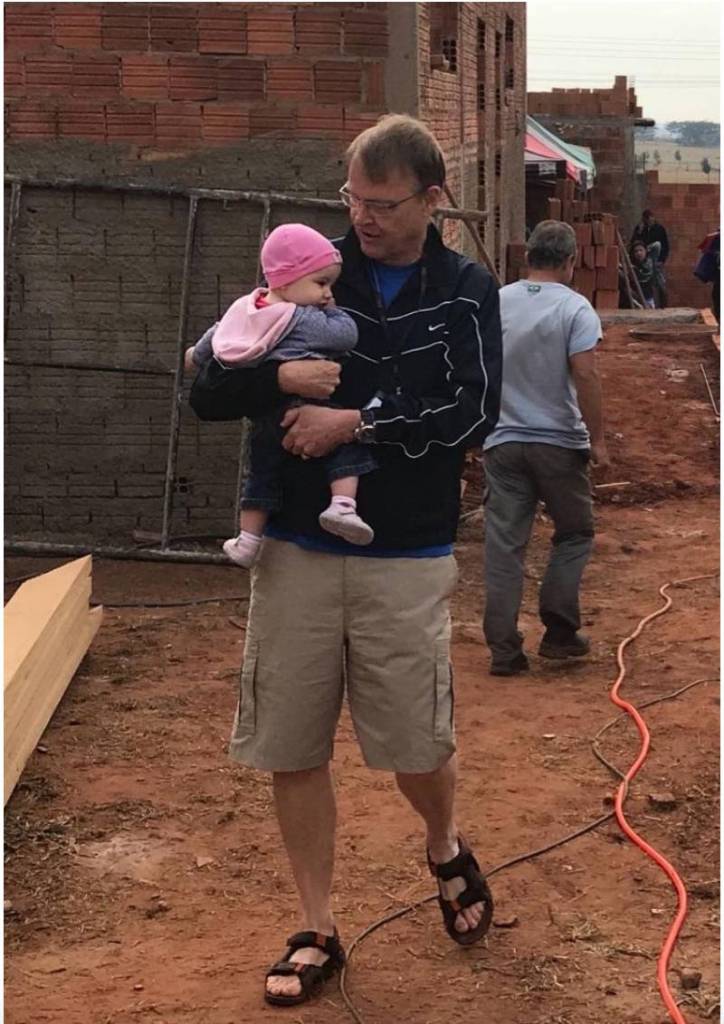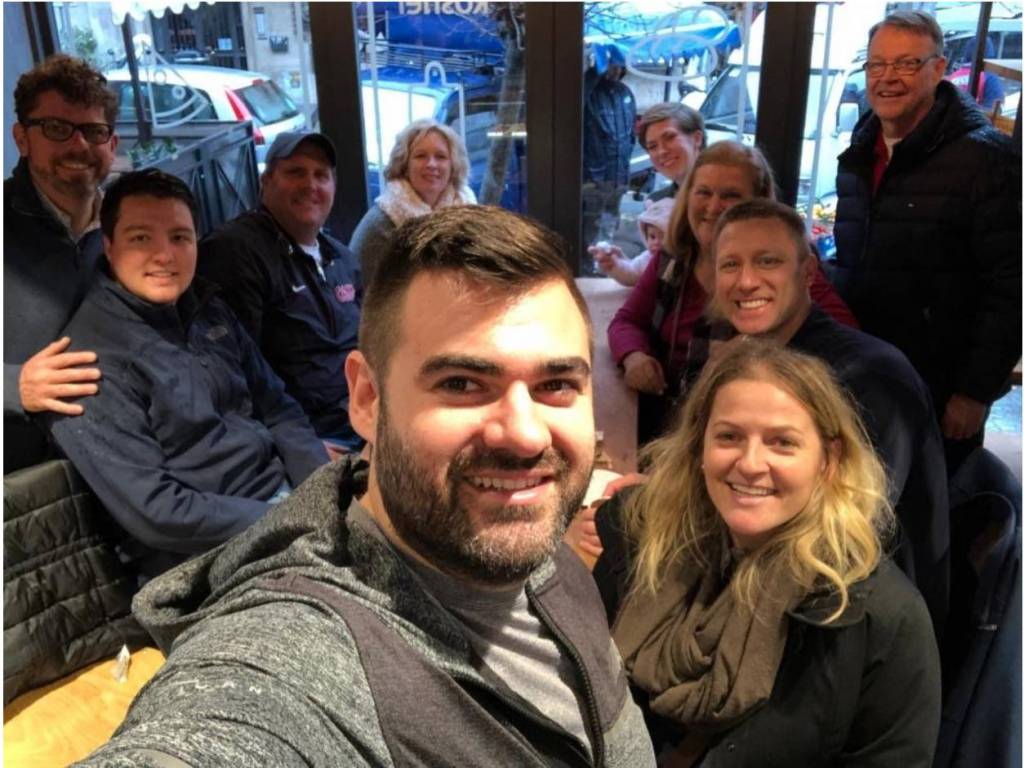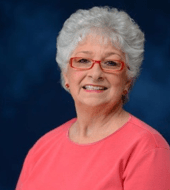Contributors
Bonnie Brown: Q&A with Ole Miss Retiree Buster Hale

*Editor’s Note: The latest interview in the Ole Miss Retirees features is Buster Hale. The organization’s mission is to enable all of the university’s faculty and staff retirees to maintain and promote a close association with the university. It is the goal of the Ole Miss Faculty/Staff Retirees Association to maintain communication by providing opportunities to attend and participate in events and presentations.

Buster Hale’s distinctive southern accent is immediately recognizable. He is southern through and through—and yet he could also be considered something of a globe trotter. Read about that here.
Brown: Where did you grow up? What is special about the place you grew up?
Hale: I was born in the Methodist Hospital in Memphis and grew up in Senatobia. While there was nothing particularly special about Senatobia in those days, it was close to Memphis and Sardis Dam, two places where I spent a lot of time growing up. Senatobia had a great movie theatre downtown and there was a skating rink in Coldwater. So, there was plenty to do and plenty of places to get into trouble.
Brown: Please talk about your childhood, parents, siblings, aunts, and uncles.
Hale: I am the oldest and the namesake of four sons of Emmette and Evelyn Hale, both deceased. My father grew up in Senatobia and my mother grew up in DeSoto County. My father was Emmette Junior, and I am Emmette III. I was called Frankie until I was about 6 months old when an uncle started calling me “Buster” and the nickname stuck. My father’s parents lived near my family and we saw them almost every day. They were an integral part of our lives. My grandfather and father started a family business, Hale Lumber Company, when I was a toddler. When my brothers and I got our drivers’ license, we were expected to go work in the business during the summer. After a few summers unloading cement sacks (no forklifts in those days), I decided to go to college after high school.
I was blessed with a loving family that allowed all of us to be individuals. I had great role models in my aunts and uncles on both sides. My brothers and I were particularly close to our paternal uncle, Dr. Alfred Hale of Holly Springs, a dentist who owned several antebellum homes that he had restored. Every April he invited all of his nieces and nephews to be hosts in his home during the Holly Springs’ Pilgrimage. Along with my two youngest brothers who graduated from Ole Miss, we went to all the Ole Miss football games. He had perfect pitch and always knew the ending note of the Stars Spangled Banner. I inherited several pieces of furniture from his last home and cherish them as remembrances of him. In his will, he established a scholarship at Ole Miss in honor of my grandparents to be awarded to music and pre-dental students.
Brown: Where did you go to school?
Hale: I went all twelve years to Senatobia City Schools and then to Northwest Community College in Senatobia. I transferred to Ole Miss and finished my Bachelor of Science in Mathematics. I later went to the Ole Miss Law School while working full-time in the University Computer Center. Thanks to one of my law professors, Bill Champion, I got a fellowship to George Washington University for my LL.M. (Master of Laws). A few years ago, I got a Master of Arts in Teaching English as a Second Language in order to teach English in Brazil. So, I have three degrees from Ole Miss.
Brown: What were you really into when you were a kid?
Hale: I was really into music when I was a kid. I started playing the clarinet in the band in the fourth grade and sang in the church and school choirs. After clarinet, I learned to play the oboe, the bassoon, and the tenor saxophone. If an instrument had a reed, I wanted to learn to play it. I also learned to really appreciate my parents coming to my band concerts and choral recitals. Neither were musical at all, but always came.
Brown: Who influenced you in your early life?
Hale: In addition to parents and grandparents, my teachers were great influencers on me. I was not very athletic like my father or my brothers, but I loved to learn. I excelled in the classroom and it was expected that I would go on to college and do well. I recall one other person who was a great encourager, Mrs. Virginia Wilson, who was from a prominent family in Senatobia and she was the organist of my church in Senatobia and on the school board. After our high school graduation ceremony, there was a reception with all the seniors in the receiving line. When Mrs. Wilson came through and shook my hand, she said to be, “I expect great things from you.” I have always remembered her words.
Brown: What advice would you give to your 18-year-old self?
Hale: Work hard, get organized, do not be a procrastinator, consider the feelings of others, and listen to your mentors.
Brown: Did you have a mentor who influenced your career choice? How did you choose your career?
Hale: I have really had three careers: one in Information Technology, one in Court Administration, and one in Human Resources (HR). I went to work in the Ole Miss Computer Center in Carrier Hall after graduation. Howard Dockery was the director and David Roach was my direct supervisor. Both of these men influenced my decision to become the Director of the Computer Center, now Chief Information Officer (CIO), one day, which I did almost 25 years later. In the early 1990s, Norman Gillespie convinced me to leave the University and come to work in the Clerk’s Office of the United States District Court as his Chief Deputy to automate the court and replace Katherine Butts, who was retiring. I learned a great deal from Norman and Katherine managing people, which prepared me to be the CIO at Ole Miss. During my tenure as CIO, I had the opportunity of working with Johnny Williams, Carolyn Staton, Larry Sparks and Kathy Gates. When Bill Rayburn called me out of retirement to lead a project for him in Brazil at Financial Neural Computing (FNC) and a second time as Director of HR in his new company, I was ready.
Brown: Talk about your path to Ole Miss. What was your very first job?
Hale: I have really had several jobs at Ole Miss, all in information technology. My first job was as a Fortran programmer converting a room survey program used by Institutional Research from IBM Fortran to DEC Fortran. It was a great learning experience and taught me valuable lessons about working until the job was finished.
Brown: Tell us about the interview process–who did you meet with, what position were you hired for, your impression of the Ole Miss campus, etc.
Hale: I am not sure that there was much of an interview process for my first job. Howard Dockery, the director, was also a mathematics professor. A friend from Senatobia and I took his graduate-level class in statistics. We both did well in his class, and he offered both of us a job in the computer center.
Brown: What were some of your responsibilities?
Hale: I was primarily responsible for converting FORTRAN programs to the new DEC system. In addition to Institutional Research, I also converted programs for sorority rush and athletics. I really got to know Judy Trott and Eddie Crawford.
Brown: I know that you played a major role in implementing new computer programs, specifically campus management at Ole Miss. Please talk about this and the benefits to student life on campus.
Hale: When I came back to Ole Miss in 1997 as the CIO from the District Court, Ole Miss was in the middle of a reengineering project led by Larry Sparks. Part of the project was the implementation of an Enterprise Resource Planning (ERP) information system to consolidate all the various information systems on campus. The lack of integration between the systems was a major problem. While Larry Sparks led the process engineering component of the reengineering effort, I led the ERP implementation. In looking at the budget for the project, I concluded that we could afford only a single vendor for the primary ERP. Systems, Applications, and Products (SAP), the selected vendor from a competitive bid process, was developing a new student system and offered us a very attractive deal to be a development partner with them. SAP promised and ultimately delivered, a unified system with a degree audit. Although I have been criticized many times for the selection of SAP, particularly the student component, it was just a business decision based on the constraints at the time. I would make the same decision again.
Brown: Information technology (study, design, development, implementation, support or management of computer-based information systems) seems to be a precise science. Are you organized and precise in all aspects of your life?
Hale: I consider myself to be very organized and not a procrastinator. I really learned to get things done while working and going to law school at the same time. There was no time to waste. But even though I have high standards for myself and my employees, I am not a perfectionist nor a micro-manager. Sometimes less than perfect will just have to do.
Brown: What was the best time period of your life and why?
Hale: The best time period of my life was when I worked as CIO of the university. It was such a privilege to work with great men and women like Carolyn Staton, Johnny Williams, and Robert Khayat. Even though we occasionally disagreed on issues, they never ordered me to do anything. They allowed me to do a job that I had trained for years to do. Robert always told us that we were stewards of Ole Miss during our tenure and we had to leave it better than we got it. We all tried to do that, and history will judge whether we succeeded.
Brown: How have your goals changed over your life?
Hale: My initial professional goal was to be the CIO of Ole Miss. When I reached that goal, I realized that the title was not as important as what I was going to do with the responsibility that came with it. When I finished the SAP implementation, I had reached the pinnacle of my career. My current goal is to enjoy working with great people in a great environment for as long as I can. When that ends, I will find something else to do.
Brown: What do you consider your greatest accomplishment?
Hale: I have two accomplishments of which I am the proudest: the naming of the “olemiss.edu” internet domain and the implementation of SAP. While working in the Computer Center during law school, I submitted the application to obtain the domain “olemiss.edu”. As a triple alumnus, I could not be prouder of our unique domain that is known to the world.
The other accomplishment is the implementation of SAP. I knew when I approved the selection of SAP as our ERP vendor, it would be for at least twenty-five years and it has been. I know that the SAP system has improved the University and I am proud that I contributed in a small way.
Brown: If there was something in your past you were able to go back and do differently, what would that be?
Hale: During my first job with the computer center, I had a chance to go to medical school by just taking Organic Chemistry in the summer. The class met in Carrier Hall just down the hall from the computer center, but I hated the lab and dropped the class. I have often wondered how life would have turned out if I had become a doctor instead of a lawyer.
Brown: Are we as a society too reliant on technology?
Hale: Yes, we are. The one thing that I notice about young people today is that many are not good communicators in speaking or writing. They are great at playing video games, but not so good at interpersonal skills. I blame technology for this.
Brown: Please tell me what 5 words describe you.
Hale: Friendly, dedicated, empathetic, learner, inquisitive
Brown: In your opinion, what attributes/traits predict success in life?
Hale: Dedication, hard work, loyalty
Brown: What’s the best and worst piece of advice you’ve ever received?
Hale: Best advice was given to me by my grandfather was to always work hard and be honest. The worst advice was to invest in the stock market.
Brown: Do you have a favorite quote or saying? If so, why is it a favorite?
Hale: Teddy Roosevelt: “Nothing in this world is worth having or worth doing unless it means effort, pain, difficulty.” This sums up my work philosophy.
Brown: What one question can you ask someone to find out the most about them?
Hale: Tell me about your family and your childhood.
Brown: What’s your favorite way to waste time?
Hale: I love to binge-watch Netflix movies when the weather is bad.
Brown: What do you do to get rid of stress?
Hale: When I worked at the university, I was a runner and a swimmer. But those days are over. Now I like to walk and work in my yard to eliminate stress.
Brown: What’s your all-time favorite movie?
Hale: Titanic. I have always been fascinated by ship disasters and this movie shows the horror of the Titanic sinking.
Brown: If you were given 3 things to make you happy, what would they be?
Hale: Good health, great friends, and interesting places to see.
Brown: What is your biggest pet peeve?
Hale: Lying.
Brown: What makes you nostalgic?
Hale: To hear music from the ’60s and ’70s. Those were great days when the world was much less complicated.
Brown: What would your perfect day look like?
Hale: Sunny, in the ’80s, with no drama.
Brown: Please talk about your volunteer efforts throughout the years.
Hale: I first started going to Brazil with my church in the early ’90s. Since then, I have returned over 30 times and have also gone on mission trips to Mexico, Peru and Italy. In my first few trips to Brazil, I was on the transportation committee because I could drive a manual transmission vehicle thanks to my summers working at Hale Lumber Company. I ultimately got my drivers’ license in Brazil. As a foreigner with an American drivers’ license, I just had to pass a psychological evaluation and an eye exam: no written or driving tests. The psychological exam was just a series of pattern matching exercises. After about 15 minutes, the psychologist finally asked me how long I had been driving in the US. When I told her since I was 15, she just signed the form and I got my license. Driving in Brazil is definitely a different experience since no one stops at stop signs, and everyone drives like it is a race even though the traffic laws are more rigid than in the US. I always have to retrain myself to stop at stop signs and to slow down when I return home.
I learned to speak Portuguese to be able to communicate with Brazilians without the aid of an interpreter. Now I translate for the nurses or pharmacists on the medical team. At first, I would blush and refuse to ask questions of female patients that involved the female anatomy or female health issues. But, over time, I learned to ask the questions without blushing and to translate their answers. Of course, the American nurses don’t know what I ask or what the patients say. So, the questions and answers are highly sanitized!

Brown: Talk about some of the interesting people you have met while traveling.
Hale: I did not take my first trip out of the country until I was 40 but have not stopped traveling since. I have not really met anyone famous but have met many fascinating people. It never fails that I run into Brazilians, particularly in Europe. I have run into Brazilians in Italy, Israel, France, England, and Ireland. I floated in the Dead Sea with a group of Brazilians. In Dublin, Ireland, I heard Portuguese being spoken in the hotel by a young couple. I spoke to them and learned all about how to answer an immigration officer’s questions to enter the country illegally and how to avoid being deported. You can always count on Brazilians to know very practical things.

Brown: What has been your routine since your retirement? Do you have hobbies?
Hale: I have not really retired, just changed jobs. I do enjoy reading and traveling.
Brown: What is on your “bucket list?”
Hale: I have traveled all over the world and really just have 2 things remaining on my bucket list.
- Go on a photo safari in a game reserve in Africa.
- Spend 6 months on a beach in a warm country and reread all the novels of William Faulkner again.
Brown: To quote Katherine Meadowcroft, cultural activist and writer, “What one leaves behind is the quality of one’s life, the summation of the choices and actions one makes in this life, our spiritual and moral values.” What is your legacy?
Hale: Hopefully, I left the places where I worked better than when I arrived.

Bonnie Brown is a retired staff member of the University of Mississippi. She most recently served as Mentoring Coordinator for the Ole Miss Women’s Council for Philanthropy. For questions or comments, email her at bbrown@olemiss.edu.





























